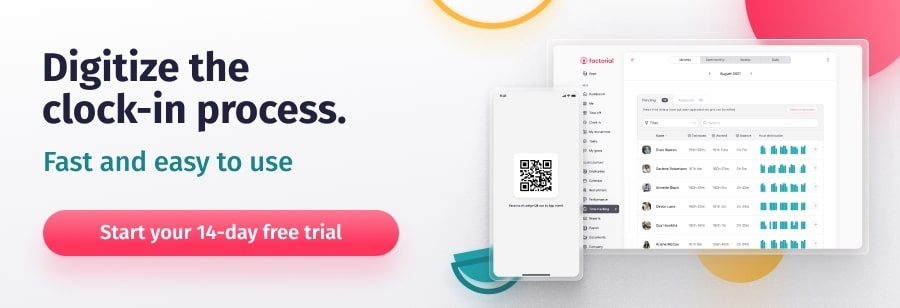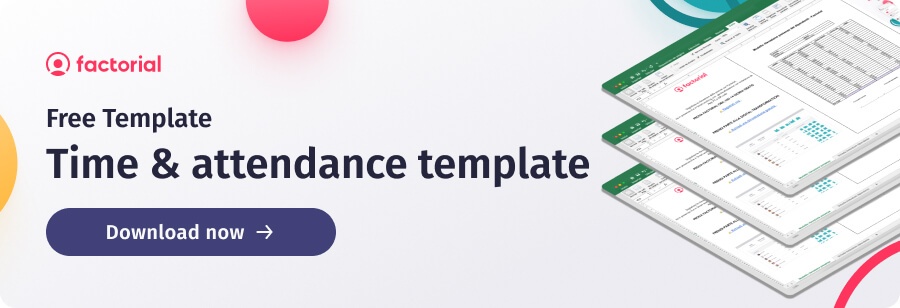Government contractors have a lot of information to take in when it comes to rules and regulations and the DCAA is no exception. While the DCAA’s specifications are far-reaching, the DCAA timekeeping requirements are especially important. Failure to comply can come with some serious penalties. If you’re not already familiar with the DCAA compliance time tracking, then you’re in the right place.
Today we’re going to explore the most important information you need to know about the DCAA, its timekeeping requirements, and an electronic timesheet software that can help you.
- What is the DCAA?
- The importance of DCAA compliance
- Exploring the DCAA’s timekeeping regulations
- Time tracking software to help with DCAA compliance
- The benefits of an electronic timesheet
What does DCAA stand for?
So first things first, let’s get to the bottom of what the DCAA actually is. If you’ve never known what this acronym stands for, it’s the Defense Contract Audit Agency. In a nutshell, this agency provides all the audit and financial advisory services to the US Department of Defense (DoD) and other federal entities responsible for acquisition and contract administration. The agency works under the authority of the Under Secretary of Defense.
Established in 1965, the DCAA is critical in making sure that every dollar spent on defense contracting is correctly allocated. The agency’s work is here to benefit not only men and women in uniform but also the American taxpayer.
Essentially, the DCAA offers regulated contract audit services, which work to ensure that all contractors meet their specific requirements. These may change yearly and cover parts of the contract including timekeeping.
Why is DCAA compliance important?
So why is DCAA compliance so important? Simply put, failure to comply can be met with some pretty hefty fines, not to mention that future contracts may be refused. At the extreme end of the spectrum, any non-compliant or fraudulent reporting of timesheets is a criminal offense under the False Claims Act. Those who commit this crime could face a jail term of up to five years. Therefore, in order to avoid these penalties, it’s crucial for companies to be DCAA compliant.
You might be wondering why non-compliance is met with such strong penalties? Well, these government contracts can be pretty lucrative. As such, the agency wants to make sure that companies are following the rules and taxpayer money isn’t wasted.
This information may sound a little alarming to some. But fear not, although the DCAA’s list of regulations is quite extensive, there are plenty of resources out there to help you.
What are DCAA timekeeping requirements?
One aspect of the regulations that is particularly tricky to follow is time tracking. To help, we’ve put together a short checklist surrounding some of the main DCAA timekeeping requirements.
Create a DCAA compliant timekeeping policy
Write up a formal policy document that clearly states the steps the company must take to meet the requirements.
Inform everyone of the policy
All employees and supervisors must be familiar with the policy. If there is a DCAA inspection, any employee working in the company may be questioned on their knowledge of this policy. Furthermore, employees must be updated with any annual changes to the policy.
Make sure to track time daily
All employees have to submit their time daily. They must not track time in advance of doing it. Moreover, supervisors are not allowed to do this on their behalf. The aim of this is to ensure the highest accuracy of information.
Be accurate with reporting
To be DCAA compliant, it’s essential that employees record every hour of their workday, keep track of whether or not employees are exempt from overtime pay, as well as take note of any leave time. This includes vacation, holidays, or sick days. Furthermore, time must be entered under the correct label and project name.
Approve time tracking information
Once employees have completed their time tracking, a supervisor needs to sign it off. This is to say that they give approval for the time tracking to be submitted to the next step of the process. In order for time tracking documents to be accepted, this step must happen.
Make a note of changes
If for whatever reason, a change needs to be made to a past time tracking document, this change has to include a reason. This reason must include the description of the change and the date and time it was made.
Keep records of information
Companies must keep their timekeeping records for a minimum of 2 years. This is for legal reasons, in case any of the information needs to be checked at a later date.
Although there is a lot involved with DCAA compliant timekeeping, this list should help make things clearer.
Is there DCAA compliant time tracking software?
If this information seems a little daunting, don’t worry we have a solution: DCAA compliant timekeeping software. If you’re worried about making sure you meet all the requirements, then why not let software take care of it for you?
Factorial’s employee time tracking software has all the features you need to ensure that you are DCAA compliant. This software allows employees to log all of their time on an electronic timesheet. With this, they are able to indicate the hours worked, time that qualifies for overtime and time and a half pay, as well as the project they’ve been working on, and any leave they take. What’s more, the software includes a shift management function, which allows employers to schedule working hours and rotations.
Another great feature allows employees to access their time clock in addition to all their personal information, documents, and other functionalities in their profile through the employee portal. The software also comes with an electronic signature function. This allows both employees and employers to sign off on timesheets, which is a requirement of the DCAA requirements for timekeeping.
Essentially, the software allows any company to efficiently track its workers’ time, ensuring it successfully meets the DCAA requirements. But what other benefits are there?

What are the benefits of an electronic timesheet?
Entering time tracking information manually on documents leaves plenty of room for errors. However, software cleans up and streamlines the process. This is just one of the many benefits of DCAA compliance timesheets. The other benefits include:
Increasing administrative ease and efficiency
This software allows you to integrate many, if not all, of a company’s HR tasks. This means that time off and leave requests, timesheet approvals, scheduling shifts and more can all be done online. Automating this process frees up much of an HR manager’s time, so they can focus on other pressing projects.
Ensuring accuracy of information
If completed in a rush, manual timesheets may be difficult to read, and it could be possible to alter the information on them. However, not only are electronic timesheets more clear but they also cannot be altered without consent and eliminate room for error. Furthermore, the system administrator is able to see the online trail of each employee, which allows any error in data input to be sorted out quickly.
Maintaining compliance with DCAA timekeeping requirements
Most importantly for DCAA contractors, using this software can help companies stay on top of the mountain of regulations they need to comply with. The time tracking software makes it much easier and simpler to keep up to date with regulations, modify time and leave, as well as any payroll processes
Ultimately, using the DCAA time tracking requirements software will save you time and any sleepless nights worrying about rules and regulations.


